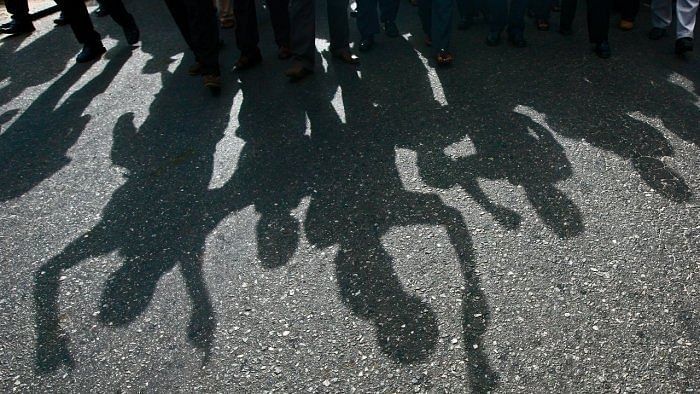
Jharkhand State Students' Union (JSSU), an umbrella body of different students' associations, has called for a 48-hour Jharkhand bandh from Saturday in support of its demand for 100 per cent reservation for local people in state government jobs.
The union has decided to take out a torchlight procession in different districts and block headquarters of the state on Friday evening on the occasion of the death anniversary of Jharkhand's tribal icon Birsa Munda.
"We chose the occasion for a torchlight procession to remind the state government about the dream of our tribal hero Birsa Munda for Jharkhand. The government has opened the door for outsiders in Jharkhand government jobs, which we cannot allow. So, we have called for a 48-hour Jharkhand bandh, beginning from June 10," JSSU leader Devendra Mahto said.
Earlier, the JSSU had launched a 72-hour agitation over the issue in April and observed Jharkhand bandh on April 19.
Mahto said they have appealed to the transport and traders associations in Jharkhand to extend their support to the bandh call. "This is not just our fight but our struggle to secure the future of Jharkhand students, whose rights are being given to outsiders," he said.
He alleged that job advertisements are being issued on the basis of a 60-40 ratio.
Mahto claimed the government had promised an employment policy based on the 1932 'khatiyan' (land settlement) but instead, it introduced a pre-2016 employment policy, under which 60 per cent of the seats will be reserved for underprivileged students while 40 per cent will remain open for all.
Making 1932 the cut-off year for the domicile policy will help descendants of people living in Jharkhand prior to that year get jobs.
The state cabinet on March 3 approved amendments to various rules related to Jharkhand Staff Selection Commission (JSSC) examinations.
He said that the Jharkhand bandh is part of their 31-day Maha Jan Andolan started from May 10.
"We met 72 MLAs including 42 from ruling parties and 13 MPs to seek their support in our agitation against the 60-40 job policy. They also spoke against it. But still advertisements for jobs are being issued on the basis of 60-40 ratio," Mahto claimed.